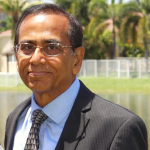
 Whenever exposed to traumas, let’s pray to our Creator, with a broken heart. He is not only the doctor who mends it, but also the father who wipes away the tears.
Whenever exposed to traumas, let’s pray to our Creator, with a broken heart. He is not only the doctor who mends it, but also the father who wipes away the tears.
By Nazarul Islam
The consequences of a tragedy often endure long after a tragic mishap is over. Accidents happen. Our bones shatter, our skin splits, our hearts break. Some of us invite burn injuries, some drown, but Thanks God, we survive after serious mishaps.
There is something about trauma to the mind, body and soul. Sufferings continue…. one day, you are normal and the next you are different; you don’t know what changed but you know nothing’s the same and all of a sudden you are learning to adapt yourself to the same environment with a whole new outlook. I guess, we realize we are not invincible and every aching bone bleeds its sorrow through anguish in your movements.
One day it’ll get easier, because the injured keeps telling himself it will and that’s the difference between becoming a pioneer through this disaster when all thought the victim would be a slave to pity.
The findings of a study by the World Bank on road accidents: it has revealed that every death in the three major countries of the subcontinent caused by road accidents lead to the depletion of nearly seven months’ income in the households of poor families and pushes the victims’ kin into a vicious cycle of poverty and debt.
Predictably, low-income rural households are hit the hardest. They reported twice the number of deaths as a result of an accident than high-income households did; the risk of a survivor having to deal with a disability was also twice as likely among poor families.
Women, the report suggests, bear a disproportionate share of the burden as well, having to take on additional work alongside caregiving activities. While 50 per cent of women reported being severely affected by the decline in their household income, around 11 per cent said they had to take up more work to deal with the financial crisis.
A key takeaway from the study is that the long-term effects of road mishaps remain — deliberately or unaddressed in policy interventions. This is perhaps because road accidents are largely viewed through the lens of public safety and infrastructure, with interventions being designed accordingly.
This is not to say that such aspects need to be ignored given that our country witnesses 53 road crashes every hour, many of which are a result of the flagrant disregard commuters’ display towards road safety. This collective indifference is represented by the sightings of helmet-less children riding pillion on motorcycles, a common occurrence on India’s roads.
Recent data from the National Crime Records Bureau showed that 83 per cent of road fatalities were on account of speeding and rash driving. But the collateral damage — debt traps for families, depression and added burdens on women — cannot be disregarded. Accidents can be reduced but not completely prevented.
Some road accidents are caused by the ignorance or disbelief of the fact that a car driver’s or the motorbike rider’s eyes and mind can be thousands of miles apart.
There is thus a case for making road safety a matter of public responsibility in India, Pakistan or Bangladesh. But this must be complemented by an administrative push to redress the accompanying financial challenges. One way of achieving this could be by broadening access to insurance.
Another casualty after the accident is the heartbreak and emotions that loved ones in the family and friends have to go through. Unlike other forms of psychological disorders, the core issue in trauma is reality. We often blame the other people, and factors for the trauma the victims and families go through, after the accident. However, we need to understand that our ‘blames’ are only a weak defense against powerlessness.
And then, the betrayal trauma changes you. You or a loved one may have endured a life-altering shock, and are likely to be living with PTSD symptoms— hypervigilance, flashbacks and bewilderment—with broken trust, with the inability to cope with many situations, and with the complete shutdown of parts of your mind, including the ability to focus and regulate your emotions.
Insurance policies need to be re-designed to make these affordable and easily accessible to survivors and their kin. But policies would be of little use — perhaps not even availed of — unless the government creates awareness campaigns encouraging citizens to insure themselves and their families, arranges for funds to be disbursed easily during emergencies and, crucially, ensures that insurance companies do not indulge in profiteering.
Whenever exposed to such traumas, let’s pray to our Creator, with a broken heart. He is not only the doctor who mends it, but also the father who wipes away the tears.
_____________________
About the Author
 The Bengal-born writer is a senior educationist based in USA. He writes for Sindh Courier and the newspapers of Bangladesh, India and America.
The Bengal-born writer is a senior educationist based in USA. He writes for Sindh Courier and the newspapers of Bangladesh, India and America.